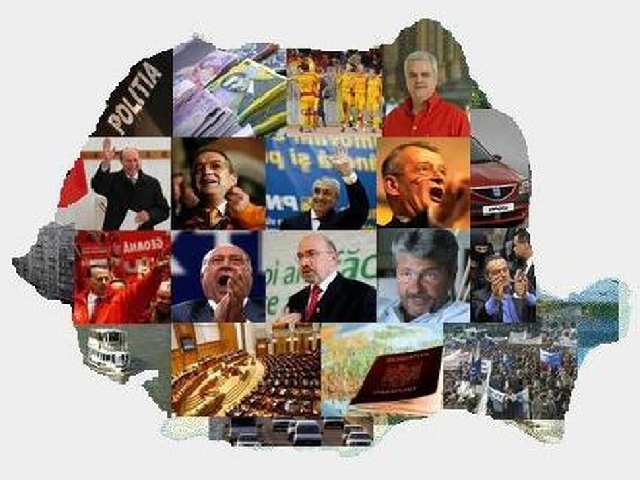The Week in Review, January 4-10
Click here for a review of the main developments in Romania this past week

Mihai Pelin, 09.01.2016, 14:12
Romanian PM on a visit to Berlin
The head of the Romanian government Dacian Cioloş and Chancellor Angela Merkel discussed in Berlin on Thursday the Romanian-German relations as well as the prospects of Romanias Schengen accession. The two officials also noted the progress Romania has made in terms of fighting corruption, which in their opinion should reflect in the forthcoming report of the European Commission regarding the Romanian judicial system. Angela Merkel appreciated Romanias importance, among other things, as an economic partner, but warned that some conditions must be created in order for relations in this field to be strengthened. These include, according to the German Chancellor, the improvement of the Romanian judicial system and curbing corruption. As regards Romanias Schengen accession, Dacian Cioloş once again said that Bucharest meets the technical prerequisites for accession, and highlighted that Romania already acts as a Schengen member state in terms of border security. The visit of the Romanian PM ended with a meeting with representatives of the Romanian community in Germany, held at the Romanian Embassy.
National Bank Governor on the state of the Romanian economy
A salary raise is inevitable in Romania, in the context of the countrys European integration, but its overlapping with fiscal relaxation measures should have been avoided, the National Bank Governor Mugur Isarescu said. He added that caution should be exercised in raising incomes, so as to make sure that subsequent cutbacks would not be needed. In his opinion, during this election year authorities must be particularly cautious as regards macro-stability, so that economic growth should not be subsequently affected by interest increases, inflation or exchange rate falls. According to Isarescu, last year the national currency, leu, was stable because the macroeconomic context of 2015 was stable and there was no need for large-scale interventions by the National Bank. At present, the international context is more uncertain than it was last year, and higher volatility or larger capital movements may generate temporary imbalances in the market, Mugur Isarescu warned.
World Bank improves forecast on Romanias economic growth in 2016
In its latest report on global economic prospects, the World Bank upgrades its forecast on Romanias economic growth rate this year, from 3.2% to 3.9%, and for next year from 3.5% to 4.1&. The institution also improved its estimate regarding the annual GDP increase in Romania for last year, from 3 to 3.6%.
As regards the region comprising Europe and Central Asia, which includes Romania, but not the Eurozone, the financial institution estimates a 3% growth rate in 2016, and 3.5% in 2017 and 2018. The National Bank of Romania has stated that boosting economic growth in the third quarter of last year was supported by the expansion of private consumption, against the background of higher incomes for the population, improved lending, lower direct taxes and a growing trust in the economy. The institution has decided to maintain the monetary policy interest rate at 1.75% per year, and to reduce the rate of required minimum reserves for the banks foreign currency liabilities.
Romania under winters assault
Romania has recently been faced with the first serious snow fall this winter, but, unlike the previous years, the phenomenon has not wreaked havoc with the country road, rail or air traffic. However, several people died because of the extremely low temperatures, which went below minus 20 degrees Celsius in some parts of the country. The bad weather engulfed almost the entire country, and weather specialists issued many warnings and codes for heavy snow, rain, heavy wind and blizzard. Speed restrictions were enforced on railroads, and many trains were delayed. Road and air traffic were faced with some weather problems too, so several flights were delayed and one plane skidded off runway upon landing in Cluj, in central Romania, because, apparently, the runway was full of snow. In the Romanian Black Sea ports, the activity was temporarily suspended because of the heavy wind. Although the layer of snow in Bucharest was not higher than 10 cm, traffic was hampered, because people in charge with removing the snow did not do their job in due time.
Budget priorities for Romanian Army
The Romanian Defense Minister, Mihnea Motoc, has announced that the number of exercises in which the Romanian soldiers will participate in 2016 will increase to over 400. Of them, more than 100 will be multinational. Also, the armys operational capacity will be strengthened, as the funds earmarked from the budget for 2016 have been increased. In 2017, the budget of the Army should account for 2% of the GDP, and the rate is to be maintained for at least 10 years, according to the authorities. A member of NATO since 2004, Romania has consolidated its position within the alliance, in particular due to last years activation of two command units: the Multinational Division South-East and the NATO Force Integration Unit. Also, the first elements of the missile defense shield in Deveselu, in southern Romania, were rendered operational.



























